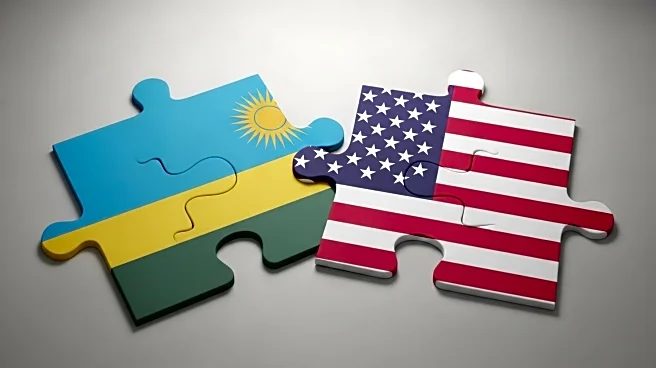What is the story about?
What's Happening?
Rwanda has received seven migrants from the United States as part of a deportation agreement with Washington. This marks the first group of deportees under the agreement, which allows Rwanda to accept up to 250 individuals. The deportees are being accommodated by an international organization, with visits from the International Organization for Migration and Rwandan social services. Among the deportees, three have expressed a desire to return to their home countries, while four wish to remain in Rwanda and build new lives. Those approved for settlement will receive workforce training and healthcare. The Trump administration has faced scrutiny for secretive deals with African countries, including Uganda, Eswatini, and South Sudan, to accept deportees. Recently, the U.S. deported individuals to Eswatini, where they are held in solitary confinement.
Why It's Important?
The deportation agreements highlight the Trump administration's approach to immigration enforcement, focusing on deportations and international agreements. These actions have significant implications for U.S. foreign relations and immigration policy, affecting the lives of deportees and the countries involved. The agreements may strain diplomatic ties and raise ethical concerns about the treatment of deportees. Additionally, the involvement of multiple African nations in these agreements reflects broader geopolitical dynamics and the U.S.'s influence in shaping international migration policies.
What's Next?
The agreements may lead to further deportations, with Rwanda potentially receiving more individuals. The Trump administration's immigration policies could face legal challenges and public criticism, influencing future policy decisions. Countries involved in these agreements may reassess their participation, considering the social and political impacts. The situation may prompt discussions on international migration policies and human rights considerations.
Beyond the Headlines
The agreements raise ethical questions about the treatment of deportees and the transparency of international deals. The involvement of multiple African nations suggests a strategic approach by the U.S. to manage deportations, potentially impacting regional stability and migration patterns. The agreements may also influence global perceptions of U.S. immigration policies and human rights standards.















